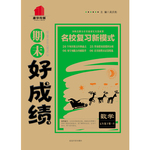题目内容
【题目】听下面一段较长对话,回答以下小题。
【1】What are the speakers mainly talking about?
A. Their favorite bands. B. Recording an album. C. Writing music.
【2】What type of person is the man?
A. Interesting. B. Creative. C. Boring.
【3】What was the man thinking about last night?
A. Socks. B. Bees. C. The ocean.
【4】What does the man invite the woman to do?
A. Listen to songs. B. Work with him. C. Join a famous band.
【答案】
【1】C
【2】B
【3】B
【4】B
【解析】此题为听力题,解析略。
【1】此题为听力题,解析略。
【2】此题为听力题,解析略。
【3】此题为听力题,解析略。
【4】此题为听力题,解析略。

练习册系列答案
 期末好成绩系列答案
期末好成绩系列答案 99加1领先期末特训卷系列答案
99加1领先期末特训卷系列答案 百强名校期末冲刺100分系列答案
百强名校期末冲刺100分系列答案 好成绩1加1期末冲刺100分系列答案
好成绩1加1期末冲刺100分系列答案 金状元绩优好卷系列答案
金状元绩优好卷系列答案
相关题目